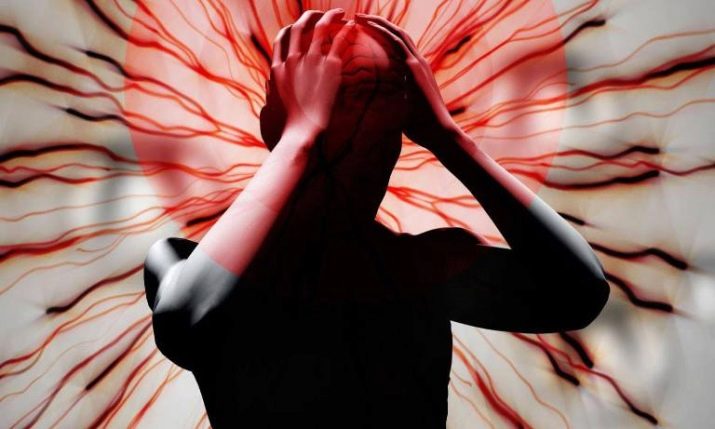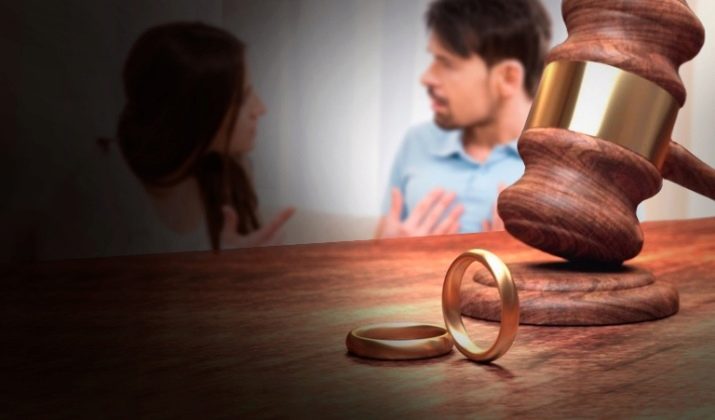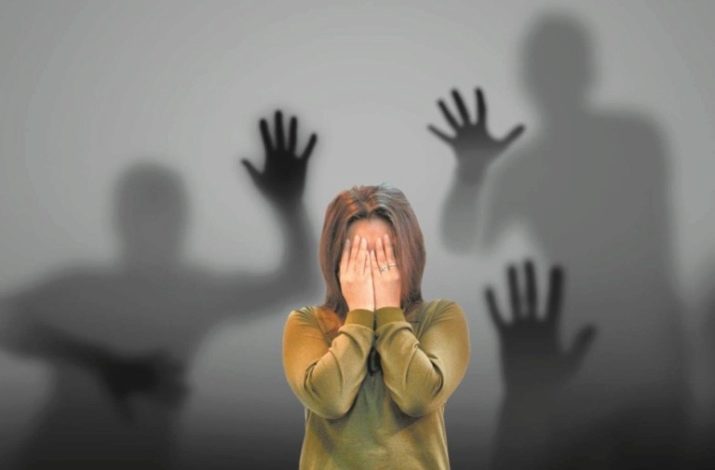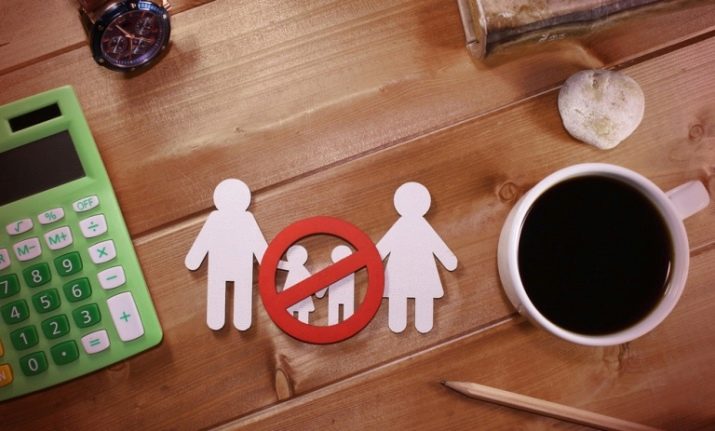What is philophobia and how to get rid of it?

Being in love is a normal state for a person. It mobilizes the psyche and the body as a whole, pushes you to great deeds and accomplishments. Falling in love is a state that begins in a person even before he reaches the age of puberty. And after children become adults, the ability to fall in love helps them create their own families, have children, and feel happiness. But not everyone can afford to fall in love so easily. People suffering from philophobia do not agree to experience such feelings for any good.
What it is?
Philophobia is a fairly widespread problem... This is a mental disorder that manifests itself in a pathological fear of falling in love. This fear is very complex and multifaceted, it can be a temporary disorder that happened after a difficult personal experience of falling in love, or it can be a chronic disorder.
In any case, the filophobe needs help, otherwise he risks living his life alone, experiencing panic every time he meets potential partners, attractive and interesting people on his way, who could make a perfect match for the filophobe.

The name of the disorder is not accidental: phileo in Greek means "to love." The definition is included in the list of mental disorders provided for by the International Classifier of Diseases ICD-10 under code 40.2 - phobic disorders. The name of this phobia speaks for itself. Fear can take root in everyone; both boys and girls and grown men and women suffer from it. Moreover, in women, the problem occurs somewhat more often than in men.Fear is formed, as a rule, on the basis of a person's personal experience or in childhood, when perception becomes heightened, in the so-called sensitive periods.
Elements of philophobia can be found in everyone who has suffered a loss of love - the departure of a partner, betrayal, betrayal, death. But such feelings are temporary, and gradually the fear of a new love recedes, a person becomes ready for a new relationship. If true philophobia develops, most likely there will be no new relationship.

On the basis of philophobia, in about a third of cases, narcissism and selfishness develop.
Often, philophobes begin to abuse alcohol and drugs in order to "crush" their inner fear and conflict (in a person, the fear of falling in love fights with the natural need for relationships with the opposite sex). Alcohol and psychoactive substances will temporarily provide relief, at least until the moment when they become addicted.
Against the background of philophobia, concomitant mental disorders often develop, and the risk of depression increases. Some filophobes decide to commit suicide without ever finding themselves "real" in this world.

Causes of occurrence
Love is an amazingly powerful and effective feeling that can lift a person to seventh heaven with happiness or make the most unhappy in the world in terms of subjective feelings. There is nothing surprising in the fact that it is love that is the cause of the development of philophobia. Fear of falling in love as such can be experienced by people of all ages - from teenagers to retirees.
Psychiatrists argue that the type of family relationship that the child observes in childhood largely affects the likelihood of developing such a mental disorder. Up to 95% of cases of philophobia, as it turned out, have their roots in childhood and adolescence.
Most often, the child creates the prerequisites for this phobia due to scandals in the family, difficult parental relationships. At the same time, female philophobia is usually laid in a situation where the father acts as a tyrant, tormentor. The child sees how the mother suffers, and does not want the same fate for himself, identifying the relationship of the parents with the concept of "love".

A male phobia is laid if the mother acts as a despot, and the father suffers humiliation and bullying. In this case, the boy also forms the wrong idea about women in general and in adulthood tries to avoid falling in love, to prevent serious relationships. In any case, philophobia acts as a defense mechanism, as the brain tries to protect a person from situations that it perceives as dangerous.
The feeling of danger is what the child experienced every time he witnesses another parental scandal. The psychology of a person with such a phobic disorder quite accurately gives him answers to all internal questions. Closeness, love, marriage, family for him are the territory of hostilities, staying on which is associated with pain and suffering. To prevent this, a man or woman tries not to fall in love.
But this decision is not conscious. So the brain decided, which built as a preventive measure a strong, sometimes panic fear that a person experiences every time it occurs to him to fall in love.

The reason for the girl's philophobia may be the attitude inherited from a single mother that "all men are bastards, they only need one thing"... The same erroneous value biases (but only against women) are sometimes passed on to sons by single fathers.
Negative personal experience is considered a fairly common cause of philophobia, usually in adolescence and adolescence. In this case, the fear of the prospect of falling in love develops under the influence of ridicule from peers.Surely there was a dramatic and unrequited first love, an extremely negative first sexual experience, or the loss of a loved one.
If a young man or girl grows up under a hail of ridicule, then they are usually sure that they are unattractive and cannot deserve reciprocal feelings in principle. In this case, the protective mechanism is formed as a preventive measure - if you do not want to be rejected, then there is nothing to fall in love with. Philophobes who survived unrequited first love create the same psycho-emotional shield for themselves.


If a loved one dies or leaves for another (another) - this is the strongest stimulating reason for the development of a phobia in a teenager. Any type of such loss is much easier for an adult to accept than a teenager, for whom a whole world can be concluded in one object of love. Mental pain makes a person close his inner world for romantic experiences - this is also protection, but this time from pain, which is possible in new relationships.
In adults, philophobia can develop against the background of a difficult marriage relationship, and it usually starts after a divorce. At the same time, the most common reason for the development of a mental disorder is considered by psychiatrists to be adultery.

Signs
The fear of falling in love manifests itself on many different levels. You can easily identify a filophobe, but you can't change it yourself or try to build a close relationship with it without the help of a psychotherapist or psychiatrist.
Symptoms appear in both emotional and behavioral aspects. The filophobe himself is well aware that he has a pathological fear of building new relationships with the opposite sex. He admits this, does not refuse it and can easily argue why this is so, what reasons he has for this behavior. And while there are no potential romantic partners on the horizon of a filophobe, he is quite calm, but sometimes acute symptoms cannot be avoided when faced with a potential crush.
Philophobia almost always affects a person's character. He changes, becomes more nasty, the person himself is quite selfish, he does everything possible so that those around him do not even have the idea of getting closer to him as a possible life partner. In severe cases, the filophobe has panic attacks every timewhen he meets a person who is as close as possible to the ideal image that exists in the minds of each of us. At the same time, male and female phobias have different manifestations.

Men
They are prone to short-term affairs, meetings "for one night" to satisfy natural sexual needs. They often change partners, they do it easily and naturally. And it may seem that they "have nothing sacred." But this is not the case. It's just that for a person, such behavior is a variant of protection from the possible danger that serious love can carry.
If one of these fleeting partners decides to drag the filophobe down the aisle or just give a hint of a long-term relationship, the patient may show numerous signs of a phobic disorder - the heart rate increases, there is a strong feeling of anxiety, and sometimes - hopelessness, there is a feeling of lack of air, nausea, aversion to situation in general, I want to run away as quickly and as far as possible.

Filophobes should not be confused with intimophobes and asexuals. They are all right with intimate desires and their realization, they are not afraid of the representatives of the opposite sex themselves. But they feel only sexual attraction to them and nothing more. Filophobic men can honestly answer when asked what exactly they fear the most. Most indicate that they are held back from falling in love by the fear of losing personal freedom, becoming dependent on the actions and moods of another person, the fear of being responsible not only for themselves, the fear of being betrayed.
Filophobe is often motivated by fear of being financially insolvent to feed a family (Often in childhood, the boy watched his mother humiliate his father for the fact that he earns little). Filophobic men look somewhat sloppy, they do not attach importance to the little things in their wardrobe, they neglect the rules - for example, they do not shave. They love to be in unfamiliar companies, because in them no one will ask uncomfortable questions about their personal life. People with this mental disorder can often be found in nightclubs.

Women
Representatives of the fair sex with such a mental disorder behave in much the same way. They can flirt, it does not cause discomfort. But the prospect of a long permanent relationship is terrifying. Sometimes women adhere to avoidant behavior at all - they try not to get acquainted with men, so as not to inadvertently fall in love (This symptom is typical for severe forms of phylophobia).
If the fan begins to take the initiative, insists on a serious relationship, the woman is horrified, it scares her, she becomes aggressive, nervous, is in a state of anxiety and tries by any means to end any communication with this man.
Philophobia in women is often accompanied by an unwillingness to have children.... This is not about infertility or temporary financial and other difficulties, but about "childfree" - an ideological conviction of the benefits of childlessness. If a woman with such a disorder nevertheless decides to have a child, then she prefers to raise him alone, deliberately refusing to marry and raise a baby with a partner.

It is not so easy to understand what filophobes feel when they are "threatened" by falling in love or the prospect of a serious relationship.
Keep in mind that most people with this fear can control their emotions to avoid falling in love. But they cannot control the manifestations of horror in the event of a collision with a traumatic situation. They temporarily lose their sense of reality, the whole world around them turns into one continuous horror, tremors of hands appear, pulse quickens, breathing becomes frequent. In severe cases, the person may faint.
Symptoms of a panic attack can also appear if the patient himself suddenly catches himself thinking that his partner has suddenly begun to interest him not only as a “sexual object”.
You can only start a relationship with phylophobes according to their rules. Or rather, according to the rules of their mental disorder. To talk about something else, you first need to help the person get rid of their fear. This can be done by a psychiatrist, psychotherapist, who will identify the degree of disorder with special tests and prescribe adequate therapy. For testing, the classical anxiety scale and specific tests are used, which include questions related to feelings after sexual intercourse, before it, as well as questions about the degree of trust.

Treatment methods
A course of psychotherapeutic assistance is almost always required. Only mild forms of philophobia in the initial stages can be eliminated by relaxation and increasing the degree of trust in people of the opposite sex. If fear has been present for more than six months, you cannot do without the help of a specialist. The doctor will help to establish and work out the true causes of fear, raise childhood memories, give an opportunity to look at them in a new way, with an adult look.
For treatment, gestalt therapy is used, as well as cognitive-behavioral therapy, in which old erroneous attitudes are replaced with new, positive ones.

In some cases, medications also help to get rid of philophobia, but they are not prescribed separately, but during the course of psychotherapy and only if the person already has concomitant mental disorders, for example, depression or neurosis. In this case, medications play a symptomatic role - for depression, for example, antidepressants are taken.
If philophobia is present on its own, without accompanying symptoms, no medication is prescribed.
As auxiliary methods that are designed to teach a person to relax, acupuncture, massage, electrosleep are used. The patient is strongly advised to watch touching love films with a happy ending, as well as read the same books. A successful treatment option is considered a course, after which the patient manages to go on a gradual, smooth rapprochement with a partner.
For partners, doctors have their own recommendations - as they recover, they should talk more often with the former philophobe about personal matters, and also show maximum sensitivity, attention and care.











